Tales From AACR From Cancer Researcher Shih-Bo Huang
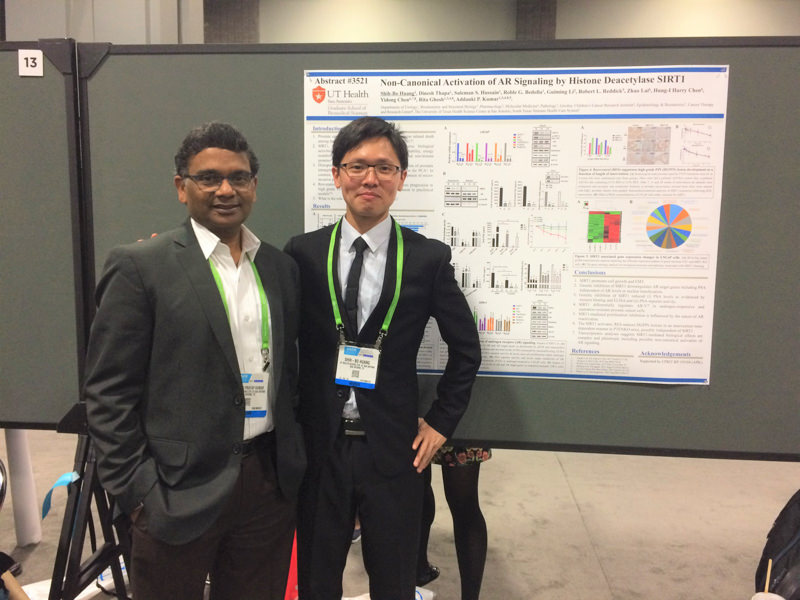 Firstly, I really want to thank my mentor Dr. Addanki Pratap Kumar for supporting me to attend the American Association for Cancer Research (AACR) Annual Meeting in Washington D.C.
Firstly, I really want to thank my mentor Dr. Addanki Pratap Kumar for supporting me to attend the American Association for Cancer Research (AACR) Annual Meeting in Washington D.C.
The AACR annual meeting is the largest cancer research symposium in the world, and it brings people from all corners of the world together from clinicians, scientists, pharmaceutical sales, graduate students and also members of the general public who all have the same goal of “fighting cancer and making life better.”
The AACR Annual Meeting not only highlights the outstanding breakthrough in cancer research and medicine from institutions all over the world, but also provides a great opportunity to build a network and foundation of understanding in cancer research.
For example, one of the many highlights of the symposium was Dr. Robert Weinberg and Dr. Douglas Hanahan‘s lecture titled “Are There New Hallmarks of Cancer?” Dr. Weinberg, from MIT Whitehead Institute, is a pioneer in cancer research most widely known for his discoveries of the first human oncogene RAS and the first tumor suppressor gene RB. His outstanding contributions to cancer research including review article entitled “Hallmarks of Cancer: The Next Generation” and textbook entitled “Biology of Cancer” really motivates me and lead me to start the journey in cancer research.
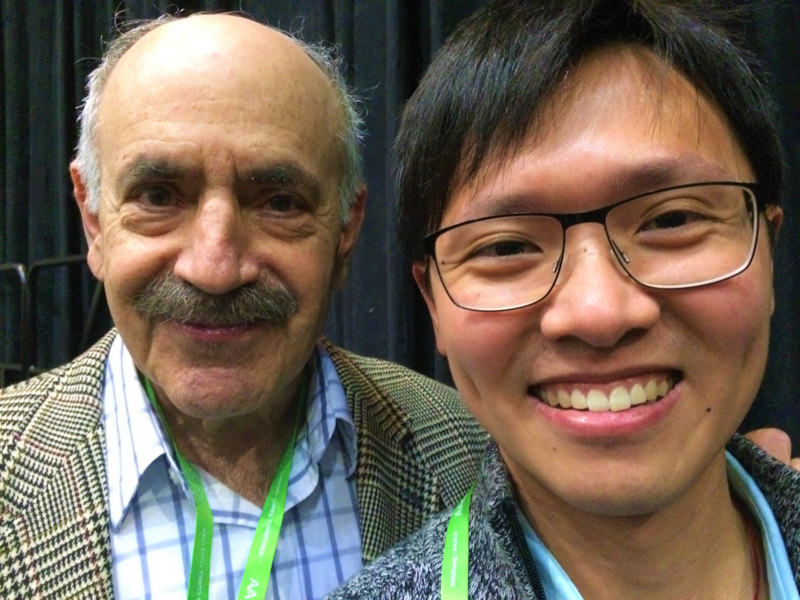 At the AACR Annual Meeting, he and Dr. Hanahan introduced new cancer hallmarks including non-mutational epigenetic changes and shunting terminal differentiation. I was so excited hearing this news because my work is focusing on epigenetic modification in regulation of prostate cancer progression.
At the AACR Annual Meeting, he and Dr. Hanahan introduced new cancer hallmarks including non-mutational epigenetic changes and shunting terminal differentiation. I was so excited hearing this news because my work is focusing on epigenetic modification in regulation of prostate cancer progression.
Shunting terminal differentiation, another new cancer hallmark, was evidenced by 2017 science paper “SOX2 promotes lineage plasticity and antiandrogen resistance in TP53- and RB1-deficient prostate cancer” published by Dr. Charles Sawyers‘ group. Dr. Sawyer from Memorial Sloan Kettering Cancer Center discovered the molecular mechanism underlying dedifferentiation of neuroendocrine prostate cancer which is responsible for drug failure and poor outcome.
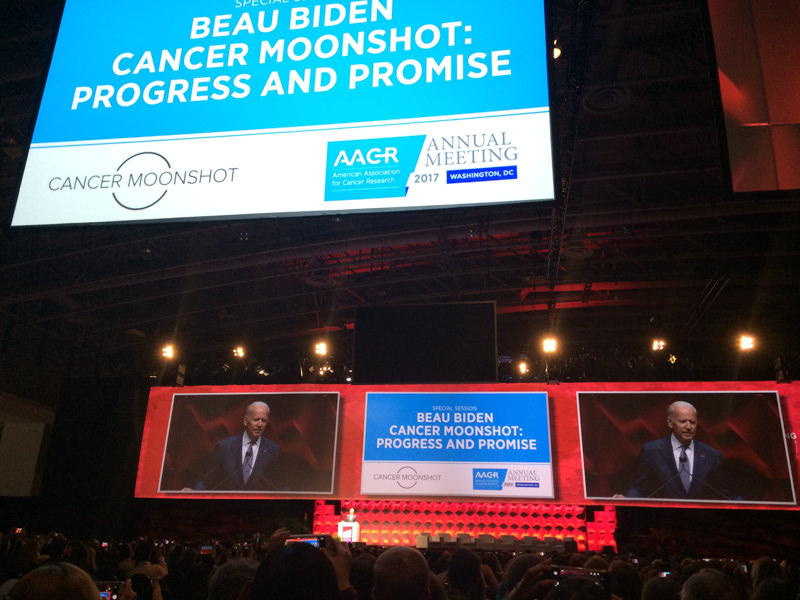 In addition, Former Vice President Joe Biden encouraged all of us to continue fighting for efforts to achieve a decade’s worth of progress against cancer and he said “This is no time to stop the momentum.” His speech is inspiring and encouraging for me to keep my cancer research journey.
In addition, Former Vice President Joe Biden encouraged all of us to continue fighting for efforts to achieve a decade’s worth of progress against cancer and he said “This is no time to stop the momentum.” His speech is inspiring and encouraging for me to keep my cancer research journey.
By attending several interesting sessions, I not only received the latest in cancer research but also learned how to apply these exciting new concepts, tools, and cutting-edge techniques to my research.
During the poster session, I updated my knowledge in prostate cancer studies a lot by reading plenty of recent literature and met some new friends who also working on prostate cancer study.
I also got a lot of valuable feedback from some senior scientists who are willing to 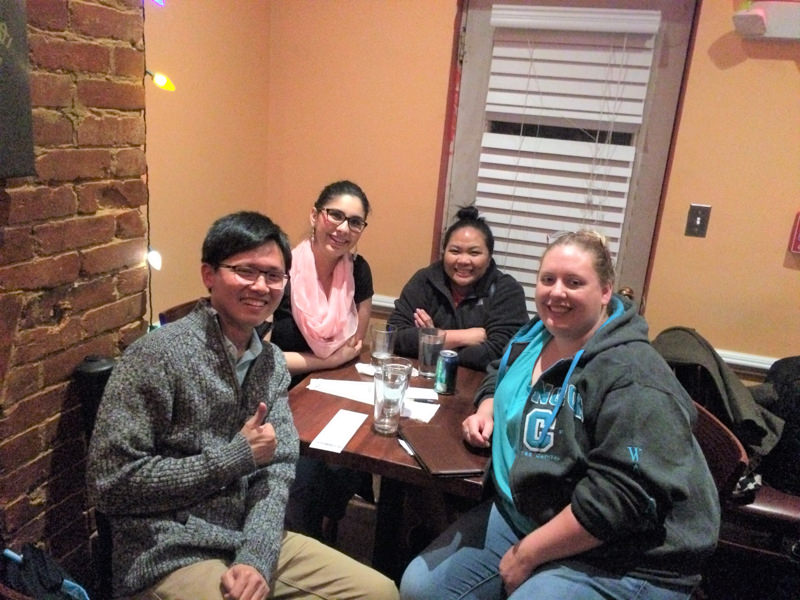 educate young generation of scientists like me when I did poster presentation. Most importantly, my research attracted attention from a group from Korea and they offered us an opportunity to collaborate, which makes me feel happy to be recognized internationally for my work.
educate young generation of scientists like me when I did poster presentation. Most importantly, my research attracted attention from a group from Korea and they offered us an opportunity to collaborate, which makes me feel happy to be recognized internationally for my work.
I really enjoyed the time having a tour in Washington D.C. which is one of the most historical cities in the world with tons of must-see attractions including The White House, The U.S. Capitol, Washington Monument, the reflective pool, Lincoln Memorial, Jefferson Memorial and several museums.
Fortunately, I also got a chance to take a walk under Washington D.C.’s famous cherry blossoms which I’ve never experienced such a picturesque place like that. I won’t forget this great experience in D.C. and am also looking forward to next year’s AACR Annual Meeting.
Additional Photos:
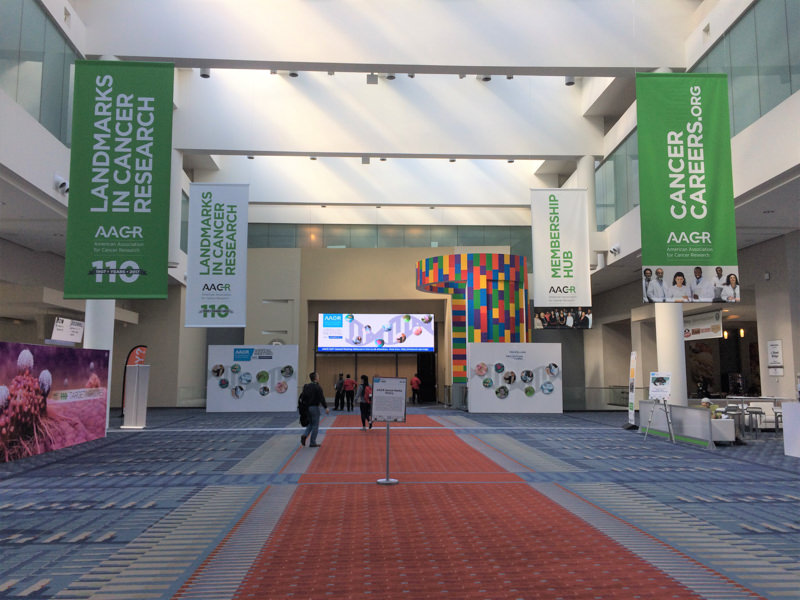
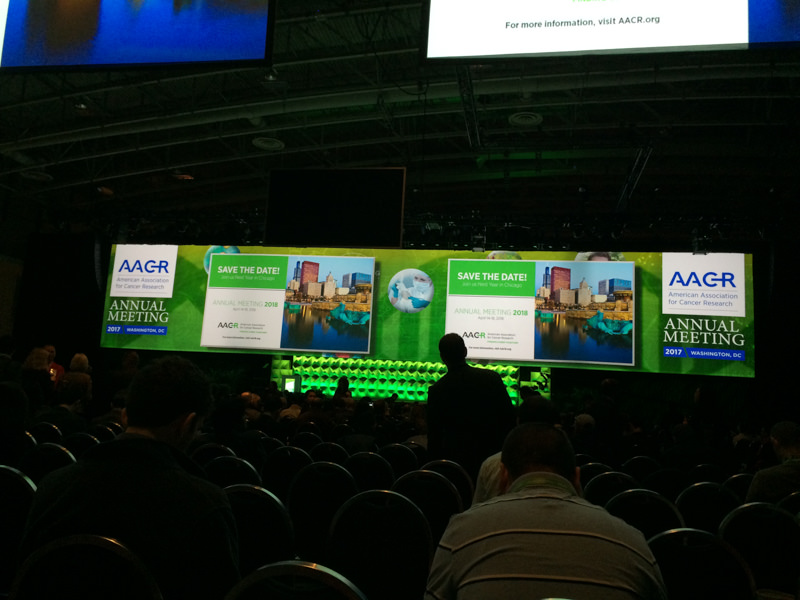
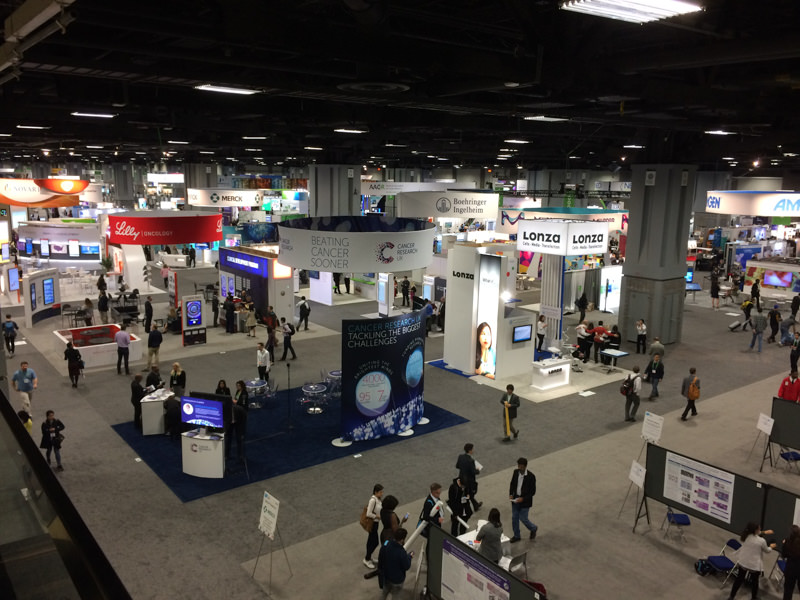

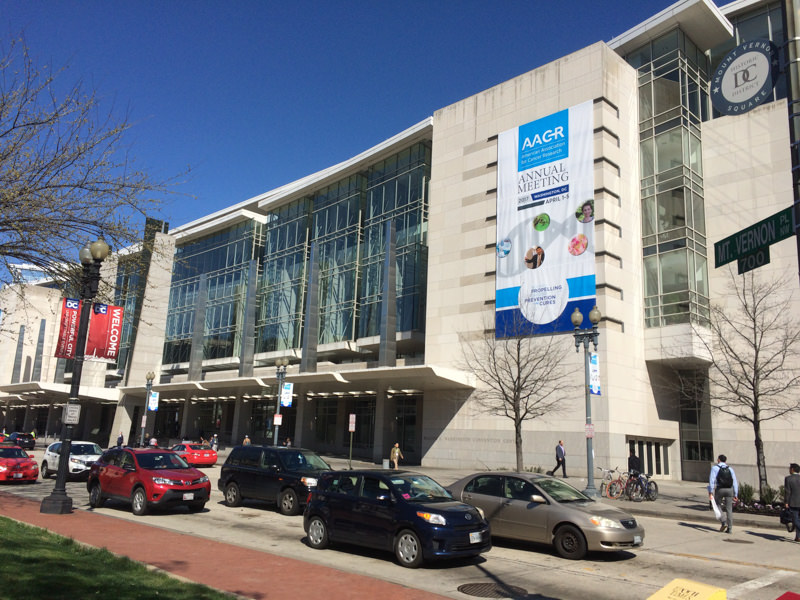
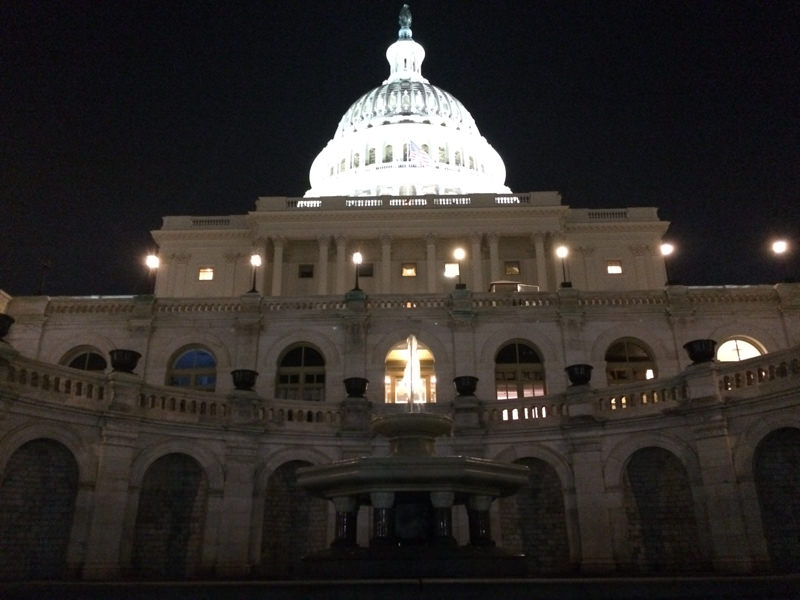
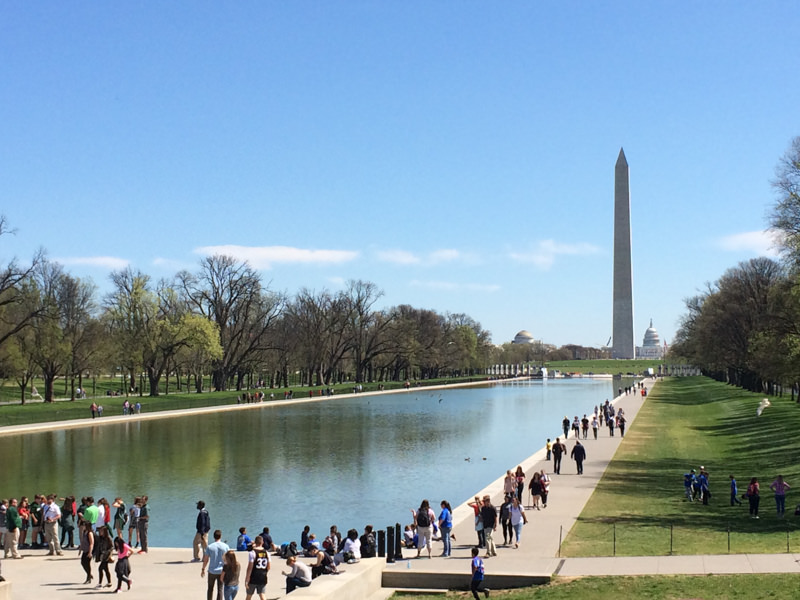
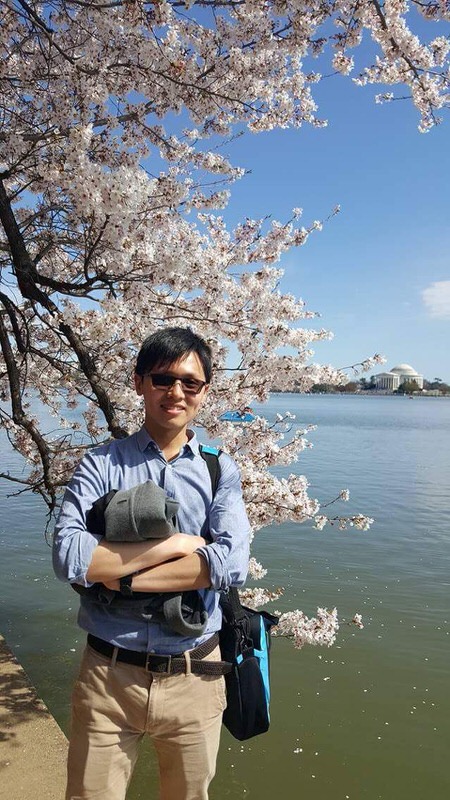
Shih-Bo Huang is a student in the Cancer Biology discipline of the Integrated Biomedical Sciences program. The “Beyond The Bench” series features articles written by students and postdoctoral fellows at The University of Texas Health Science Center San Antonio.
